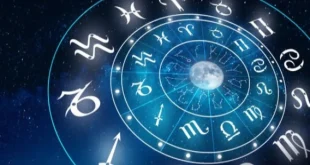
The troubles of Chief Minister Arvind Kejriwal, who has been arrested in the money laundering case in Delhi Excise Policy, are not showing any signs of ending. After getting a setback from the Delhi High Court, he has sought help from the Supreme Court regarding his concession, but here too there is no hope of hearing his petition before Monday.
When will the Supreme Court hear the ED remand?
Arvind Kejriwal's petition could not be heard on Wednesday (April 10) and due to the court being on holiday, there is no hope of hearing before Monday. He challenged the Delhi High Court order on ED remand in the Supreme Court and demanded an immediate hearing. On this, Chief Justice D.Y. Chandrachud said he would check the e-mail. Send mail.
There are continuous holidays in the court
Now Thursday (April 11) will be a holiday due to Eid, Friday will be a local holiday and Saturday-Sunday will be a holiday. That means hearing on his application is not possible till Monday. Although no special bench will be constituted in such a situation, the CJI said that if you e-mail this petition to me, it is possible that his bench will hear it.
Arvind Kejriwal is basing the elections on
Arvind Kejriwal has once again mentioned the elections in the petition filed in the Supreme Court. His petition claims that the statements and alleged evidence on the basis of which the ED has made the arrests are several months old but the arrests took place before the elections. This is a step which will have far reaching impact on the electoral politics of the country. If he is not released, it will set a precedent for ruling parties to arrest opposition leaders before elections. It is clear that after getting a setback from the High Court, he wants to press for his release on the basis of elections. The High Court declared his arrest valid. The court said that prima facie the ED has enough evidence to arrest the Chief Minister, his arrest is not a violation of the law. Saying this, the High Court rejected the petition challenging the arrest.
What did you say about the High Court's decision?
Delhi High Court said in its decision that questions cannot be raised on the statements of witnesses. Kejriwal had argued in the Supreme Court that the High Court had failed to understand that statements recorded under Section 164 of the CrPC are not considered 'absolute truth' and the court can cast doubt on them. These statements can never be used as concrete evidence of the truth of the facts, but can be used to refute and corroborate witnesses.
What was said on the witness statement?
According to Kejriwal's petition, the High Court has also failed to understand that the statements of co-accused who are government witnesses cannot be considered as the starting point to establish the guilt of a person. ED is compulsorily recording such statements. The petition claimed that the High Court also failed to understand that the ED had recorded such statements by luring bail and acquittal, hence they cannot be believed. In the petition filed in the Supreme Court, it has been argued that the statements on the basis of which the arrest has been made were recorded between December 7, 2022 and July 27, 2023 and after that no evidence was found against Kejriwal. He has claimed that no statement was recorded to corroborate the old statements till his arrest on March 21, 2024, even though it is required to do so under Section 19 of the Prevention of Money Laundering Act (PMLA). Kejriwal's arrest after the announcement of general election dates i.e. March 21, 2024 is clearly motivated by extraneous considerations.
 look news india
look news india
